
9/18/2020
1
Chương 7. Vai trò của vi sinh vật trong các quá
trình sinh địa hóa
•Giới thiệu chung
•Dòng năng lượng
•Chu trình oxy và cacbon
•Chu trình nitro
•Chu trình lưu huỳnh
•Chu trình Iron
•Các chu trình khác
Giới thiệu chung

9/18/2020
2
Nguyên tố Tảo Vi khuẩn
Hydrogen
Oxygen
Carbon
Nitrogen
Sulfur
Phosphorus
7.2
48.3
33.6
6.2
1.1
0.8
8.0
20.0
50.0
15.0
1.1
3.2
Một số nguyên tố chính có mặt trong tế bào vi sinh vật
(g/100 tế bào khô)
Dòng năng lượng

9/18/2020
3
Năng lượng tiêu tốn cho một số phản ứng sinh hóa ở vi sinh vật

9/18/2020
4
Chu trình Oxy

9/18/2020
5
Chu trình Carbon


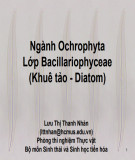



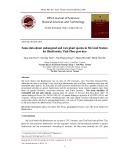
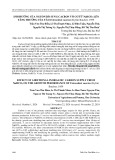
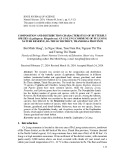
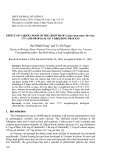
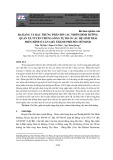




![Bài giảng Giáp xác chân mái chèo [mới nhất]](https://cdn.tailieu.vn/images/document/thumbnail/2025/20250927/lethihongthuy2402@gmail.com/135x160/92891759114976.jpg)



![Tài liệu học tập Chuyên đề tế bào [mới nhất]](https://cdn.tailieu.vn/images/document/thumbnail/2025/20250906/huutuan0/135x160/56151757299182.jpg)






